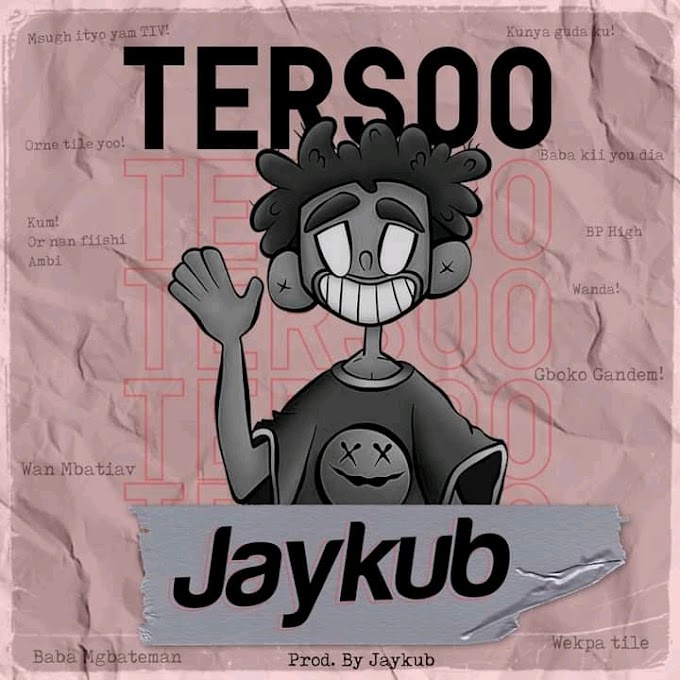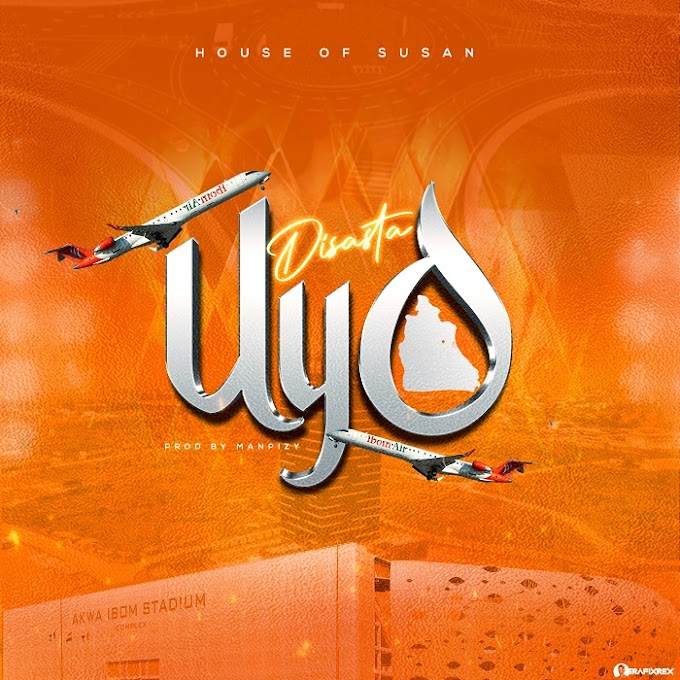25 YEARS AFTER: BIBLE AND SWEM CLASH IN TIV LAND AGAIN
By Iorliam'Amo Shija
PROLOGUE:
In 1991, Orchivirigh Alfred Akawe Torkula, a 47 year old seasoned civil servant faced a major challenge as he set out to rule Tivland as the fourth TorTiv . Although a Catholic, his people had elected him as their new Tor Tiv after the demise of Late Orchivirigh Dr James Akperan Orshi, Tor Tiv III, 1979-1990.
His emergence and the nature of the oath he took almost divided Tivland between the traditionalists and the modernists. The core issue of the argument of the former was that like their first and second Tor Tiv, Makir Dzape (1946-1956) and Gondu Aluor (1956-1978), Chief Torkula did right by swearing on the Swem. The latter argued that he should have rather gone with the Third Tor Tiv, James Akperan Orshi who took his oath with the Bible.
As Tiv people prepare to get another Tor Tiv, the Bible and Swem debate has once again resurfaced . But what many people don't know is that, this is not a new argument.
So what were the arguments of the leading schools of thought about this same topic 25 years ago? To answer this question , we can get a glimpse from the stories and the editorial of The Gazette Weekly, Vol I No 3, 19th May, 1991.
Excerpts :
TWO MASTERS CLASH AS TOR TIV BEGINS REIGN
-HIDDEN AGENDA IS FEARED
-CHRISTIAN LEADERS WARN
By the Insight Team: TAHAV AGERZUA and SEWUESE IGBADU, with additional reporting by BEN IBI
GBOKO: The bubble that accompanied the presentation of the staff of office to the fourth Tor Tiv last April 20 is dying down as the well-received Tor settles down to the challenges of his esteemed office. But two well-known icons, the cross and the ancestral swem are already engaged in a landmark contest for the Tiv soul.
The Gazette can reveal that the stage for the battle was set with the passing on of Tor Akawe Torkula’s venerable predecessor, when some kingmakers in and around the Tiv Traditional Council, apparently irked by the Christian predilection of the late James Akperan Orshi, vowed to “move the TTC and the Tiv people closer to their roots at all costs”. This movement itself has a more complex origin (see second story).
TTC watchers here suggest it was clear after elaborate traditional initiation rites were announced that the “traditionalists” had had their way. Still, many other subjects had maintained it was not certain if Alfred Akawe Torkula, a baptized Catholic, would meekly succumb to arrangements that may be inconsistent with his faith.
But the Secretary to the TTC, Mr. Tyokase Tor, said Tor Tiv 4th could not have turned his back on the rituals because he was fully aware of the implications of becoming a traditional ruler.
Mr. Anthony Hanmation, who headed the selection Committee, had reportedly told the candidates, all of whom bore Christian names: “For the avoidance of doubt, the accepted definition of a traditional ruler is, and I quote: “a person who by virtue of his ancestry occupies the throne or a stool of an area and who has been appointed to it in accordance with the custom and tradition of the area and has traditional authority over the people of that area or any other person appointed by instrument and order of the government to exercise traditional authority over an area or a tribe within a state recognized as such by the government of the state”.
He also warned that “any of you who feels such subscription might conflict with his religious beliefs and practice and therefore cannot subject himself to it is therefore free to opt out now.”
Mr. Tor said there could be no doubt that “the new Tor Tiv fully applied himself to these criteria”.
Yet the TTC Secretary admitted that some aspects of the rites were unprecedented, and that probably they had not been brought before Dr. Orshi in the same force they were placed before his successor.
But neither Mr. Tor nor Mr. Hanmation could specify the practical ramifications of the new rites, which were given legal force by a January 8, 1991 amendment to the 1979 Tor Tiv Appointment Edict.
The amended edict required, among other things, that the new Tor Tiv must be “versed in Tiv tradition and culture; and be literate in Western Education”. But perhaps the most seminal provision consisted in the requirement that “The Tor Tiv-elect shall assume office only after subscribing to the traditional oath and ceremonies associated with the office and in accordance with custom and tradition of the Tiv people”.
Although the new law’s mission was unmistakable, it was not clear why three significant amendments had to be made in the way and at the time they were. Still, going by the testimony of the TTC secretary, the traditionalists who induced the amendment seem persuaded the rites had been in existence before Torkula’s ascension and had probably been down-played in the era of an unserious Tiv perspective on culture following from deep Western influences. They said the legitimacy of the amendment could be safely assumed.
“The reawakening now is to go back to roots, and so the present trend,” Mr. Tor said.
In the midst of the arguments, the resolution had to be Orchivirigh Torkula himself, owner of a rich background in missionary education, qualifications in French Studies, a reputable record in contemporary public service, and who also has an established royal heritage.
But in “applying himself fully to the new criteria” the new Tor had apparently conceded the ground to the traditionalists.
Translated from the Tiv original, His Royal Highness had accordingly sworn before the TTC on the ancestral swem: “I, Akawe Torkula, hereby declare that since you have elected me to be the Tor Tiv…I won’t let down the traditions and customs of the Tiv people, so let my grandfather Takuruku help me to lead his children”.
And before the installation, Orchivirigh Torkula underwent an unprecedented 3-week period of installation, which included the arrival of the wooden traditional talking instruments known as “ilu” and “indyer” that were later played at the instance of some TTC members. He had also visited the royal graveyard in Gboko, where he invoked the spirit of the ancestors. At the installation itself, a grateful Tor Tiv IV committed his innumerable guests and well-wishers into the hands of “the spirit of my ancestors”.
But Christian leaders, who had no clear role in the run-up to and on installation day (no Christian prayers were offered all through the ceremony) raised voices of protest over what they saw as an “unfortunate regression into primitivity and idolatory that is capable of invoking the wrath of God”.
The Reverend Joseph Kanyi Manyam, Pastor of NKST, Gboko Central and for several times Chairman of the NKST synod, warned: “Those who are advising the Tor Tiv and leading him into mystical rituals are taking the whole Tiv people into darkness, confusion and chaos”.
He maintained that it was late Jato Aka, the famous Tiv elder, who misled the colonial administration into believing ‘swem’ was a Tiv god when in fact the Tiv acknowledged “Aondo U Abaverjua and Aondo U Yookoo” (Christians believe this is the same thing as the God of Abraham and the God of Jacob) long before the European missionaries brought Christianity.
“It was because of Jato Aka’s mistake”, continued the elderly reverend, “that plague upon plague, in form of political turmoil, barrenness and famine, came over Tivland until Tor Tiv II, Orchivirigh Gondo Aluor, called us to pray for him and Tivland”.
The Catholic Bishop of Makurdi Diocese, the Rt. Rev. Dr. Athanasius Atule Usuh, told The Gazette that the new ruler “ought to have followed the example of the Longme of Shendam in Plateau State, who took his oath of office on the Bible and in the presence of his Bishop”. (The Olu of Warri and Sultan Dasuki also swore on the Bible and the Koran, respectively).
Dr. Usuh advised our reporter to “go and ask those who want a mystical Tor Tiv. Ask Rev. Father Adasu why they are mystifying the Tor Tiv”.
Reverend Dr. Nicholas Tarbo, who is the principal of St. Michael’s Secondary School, Aliade, Orchivirigh Torkula’s alma mater, questioned the justification of the innovations.
“Are they justified? How many subjects approve of them? What purpose do they serve?” he asked.
But the camp of the “traditionalists” did not seem to lack vocal members, including some catholic clergy who agree with Rev. Fr. Moses Adasu that the Tor Tiv needs a lot of witchcraft to buoy his clout.
“To the extent that the Tor Tiv is a traditional institution, mystification is justified,” said Rev. Asemagema, Parish Priest of Lessel in Ushongo LGA, who also holds the view that unlike Islam, Christianity is not a way of life and so traditional values could transcend Christian beliefs like in the current case.
Tyoor Akaahar Adi, the District Head of Mbayion and until lately the Acting Chairman of the TTC, compared the rites involved to those in the Old Testament, arguing that some of them were in fact skipped while others were merely symbolic. He said the Tor Tiv could also be a Christian, but that Orchivirigh Torkula could not have been allowed to swear on the Bible.
Another TTC member, Tyoor Mgbami Takema of Ipav District, said the Tor needed more mystical authority and certainly not less. But several other TTC chiefs would not agree to comment on the development.
Mr. Bernard Ada, legal adviser to the Kwande Local Government, said “the swem is only a symbol of a pledge to speak the truth. But in our environment, the Tor Tiv must strike a compromise”.
But vexed Christian leaders were insisting that the traditionalists had “gone too far in this illegitimate recourse to an unholy past”, in the words of evangelist and businessman Peter Zawua. Added Pastor Ver Ajoko of Abinsi: “The raison d’etre and original mandate of the Tor Tiv institution has been clearly sidetracked in this unfruitful enterprise.”
As The Gazette went to press it was uncertain if a concerted Christian response to the development was planned, although denominational leaders separately spoke of intended meetings with the Tor.
…A Pattern of Influences is emerging
By Sam Unom
MAKURDI: The television promo of the film on the ascension of Tor Tiv IV includes the picture of a shaking old man lifting a fetishly decorated pot into the extended hands of a beaming Orchivirigh A.A. Torkula. Accompanying this is a script voice over which speaks of “a healthy return to traditional values.” Not substantiated or explained, however, is the healthy nature of the return and the force behind it.
The Gazette found that the mystical dimension to the ascension may have been the product of growing tendency by a section of the cosmopolitan Tiv elite to superimpose cultural trends experienced in other societies on Tiv traditional forms. The tendency has already shown itself in and around Gboko in a super abundance of ceremonies and parties, at which naira notes are sprayed by young, well fed persons answering to the all-encompassing name of businessmen.
A rising number of such businessmen, especially of those of them based outside Benue, is being distinguished by chieftaincy titles conferred in faraway places, while those at home have been looking to fixing their own titles.
This new elite has been arguing for a new Tiv society that would clearly set the men of substance apart from their less privileged contemporaries, and which would allow for a less restrictive moral code on the acquisition of material wealth and the celebration of status.
In the present case of the Tor Tiv’s ascension the elites seemed to have found fertile ground in very high places, where a ranking government official was overhead speaking of “the urgent need to enhance the office and person of the Tor via a solid grounding in ancestral methods”.
Part of the new deal is that the Tor cannot possibly be expected to partake in “such demeaning rituals as going to church, rising up at the direction of some service conductor or opening his esteemed headwear for some prayer.”
The question has been left hanging as to whether the advances made by the new elite are supported by authentic Tiv cultural practice, which is not really admissive of gods or demi-gods.
THE TOR TIV AND WITCHCRAFT
Few people would doubt that the ascension last April 20 of Orchivirigh Alfred Akawe Torkula as Tor Tiv IV is an important milestone in the life of the man, the Tiv nation and its neighbours. Indeed, beyond the due fun and the dream fare is the solemn fact of enormous challenges and pregnant years ahead. It is a happy time; it is a time for reflection.
The general belief for some time was that the institution of Tor Tiv is a recent development, in fact a colonial creation – the first Tor having being coronated only as late as 1946 and Orchivirigh Torkula being only the fourth on the line of succession. Yet it is one problem of such general beliefs that they tend to focus only on the obvious, the less salient and often fundamental truths being obscured. This appears to be the case here.
As relevant experts have already pointed out, it was always the custom of egalitarian Tiv society to recognize a most respectable member of every segmentary group for purposes of leading opinion in the hugely cherished communal and democratic set-up. It is noteworthy that the Tiv’s zealously cultivated egalitarian spirit could never allow for those so recognized to assume dictatorial attitudes or, for that matter, to institute a dynasty of succeeding offspring. In point of fact, the conferment of leadership had more to do with age than with anything else – the aged often also revered as the wisest. In all instances the concept of Tor as leader, carefully distinguished from Tor as lord or king, was neither new nor strange to the Tiv people. At the time Tor Makir Zakpe was installed as a pan-ethnic leader forty-five years ago, his ascension was merely a Tiv national expression of a felt need for a tribal referent and rallying point.
But was the Tor also expected to be the custodian of fetish “ancestral” spirits? Was the institution also perceived as a spirit medium? Did the mandate to lead ever extend to an indeterminate mystical preeminence? Was the incumbent required to be mystique? These questions must be approached at all three levels namely; the logico-historical, the contemporary mileu and the imperatives of the age.
At the logico-historical level, it should suffice to note that even the first Tor, a World War II veteran, was never selected on the basis of mystical authority which he certainly did not possess. In fact no unusual expertise in Tiv culture apart from that acquired in the normal process of socialization he underwent as a Tiv man was required. Ancestral worship and witchcraft were as unpopular then as they are now, and the Tor Tiv was a pan-ethnic institution needed even then to win acceptance from the people by committing himself from the onset to their yearnings and aspirations. The fact that Tor Zakpe was selected in spite of, and largely on account of, his exposure to other civilizations through his foreign travels is indicative of a longstanding progressive tribal outlook. It is either that the Tiv people did not know their own traditions or deliberately to align themselves with the more constructive current in human history, but the fact remains that they have lived with succeeding traditional rulers who were never noted for their roles as spirit mediums.
Does the contemporary period demand a return to “ancestral roots”? It is no definitional sleight of the hand to insist that the cherished Tiv heritage consists, not in witchcraft, but in the progressive communal ideals of good neighbourliness, reasonableness, and mutual help. The Tiv like all other humans have always had grandparents. At no time, however, have they entrusted their destiny into the hands of dead forebears, no matter how feared or revered they were in their life time. Similarly, while elements of a belief in witchcraft and its corollaries persist, witchcraft itself has never been seen in positive light. Not surprisingly, suspected witches and wizards have continued to elicit revulsion, if on occasion fear, but never respect.
Of course there is an imperative to impress the authority of the Tor Tiv on his subjects and in the assemblage of other Nigerian ethic groups. But does this imply an imperative to dip the institution of Tor Tiv into mysticism? It is godliness that exalts a people, not witchcraft. The Tor certainly can do with more clout, but this can only come through a return to ennobling communal mores, voluntary respect from his subjects and above all a deep fear of God. This is the foundation of wisdom and the basis of genuine national redemption. Those who are clamouring for a mystical sourcing are in fact asking to discredit the institution. For, who can tell the ramification of the rituals that spiritism ultimately entrains?
True, it is easy to point to examples of other cultures that are inextricably steeped in animism; such cultures, however, have been known for backwardness and decay rather than enduring positive contributions to human advancements. We can readily point to Haiti, the world headquarters of voodoism and simultaneously about the most miserable nation on earth. The challenges before the Tiv nation are too serious to allow for a wasteful and harmful diversion to idolatory.
Stories and editorial of The Gazette Weekly, Vol I No 3, 19th May, 1991.











![MATA2023: Vote Arc. Elijah Anayagher- Ayenges Man [MP3 DOWNLOAD]](https://blogger.googleusercontent.com/img/b/R29vZ2xl/AVvXsEi-nRZqOxqMlkV7AgdcHAFAyH1MxFPy-qbScfVh_71Z0smf9khZfqS14YznQ3RAq7QEyYVta1beU8jmsnAEICQAy583gdBh-IcDvg97b7VHNYffFkMgFYLZLQcVDNTk2h2jPlnL2Vw6gti2/w680/1677498226317999-0.png)




![[AUDIO] Bone Guy - Asembe feat. JQ x HMan (@prod.by-ModernMix) - snazzy](https://blogger.googleusercontent.com/img/b/R29vZ2xl/AVvXsEj05ShMOhyphenhyphenVY0HJKYsIF074MtwD7bzNJkWwQ_tIQdIketXHPNmy6JCTO4mSyCR8PLJGtn0t16Ea707ZtU-62To1Lt7L0AtYgqF4OQwSGrnyTFqIugZcaK_tkBFioqor_nytbLQeuLGf2epM/w680/1641960117308118-0.png)



0 Comments
Feel free to say your view, this site is a free market place of ideas.